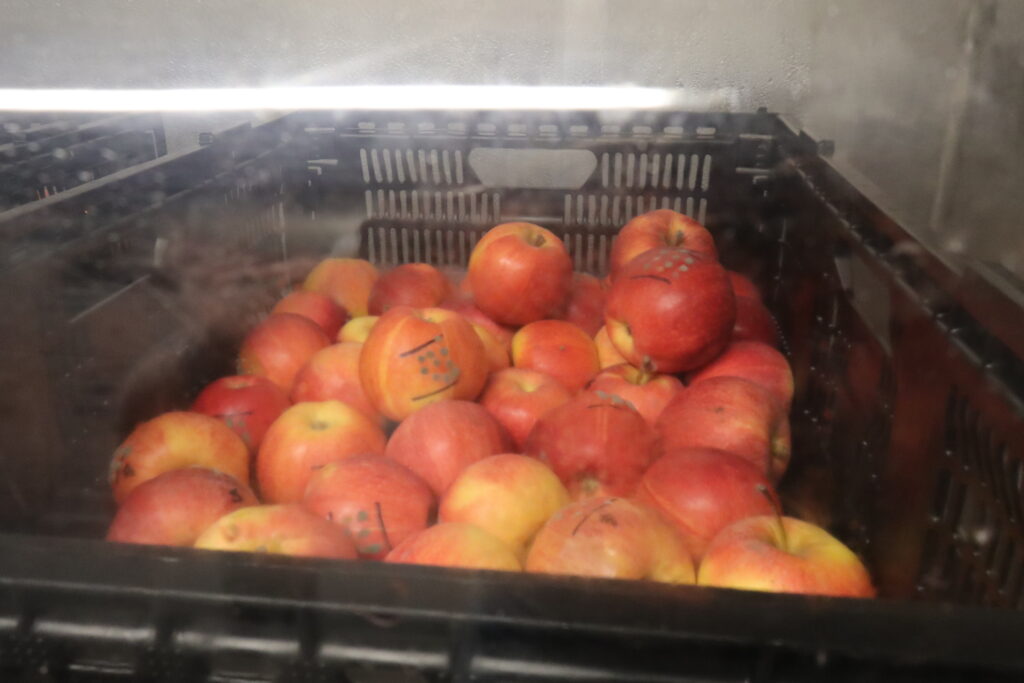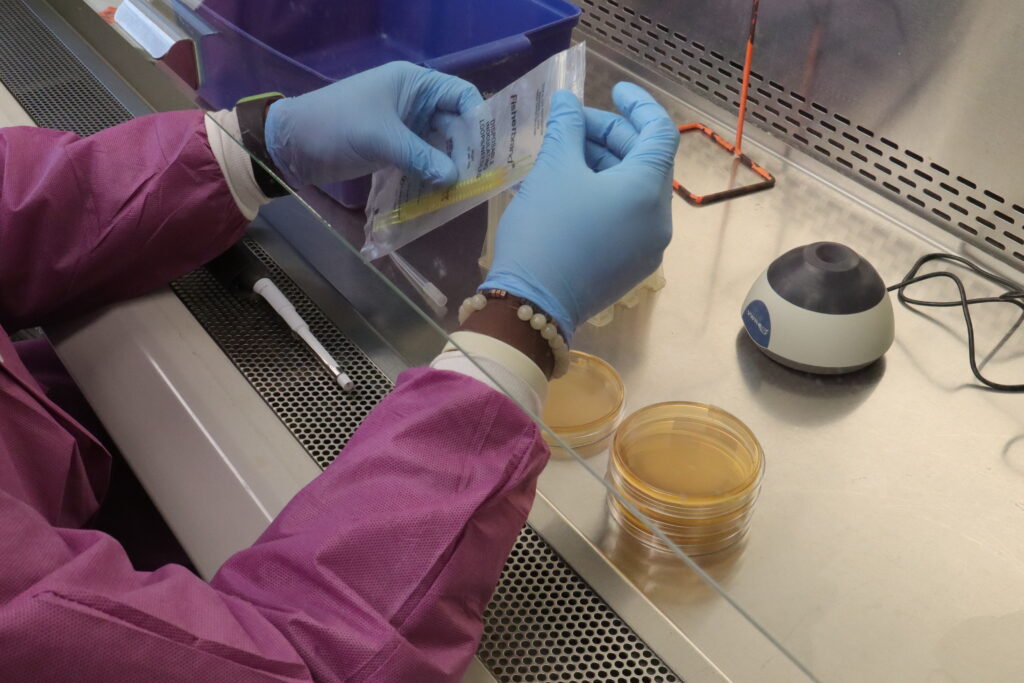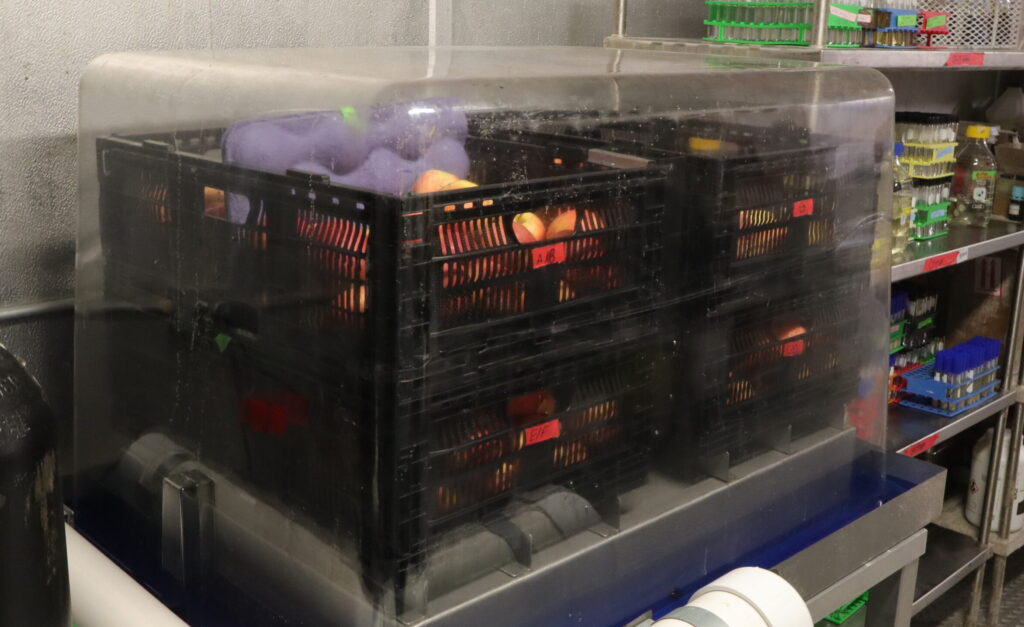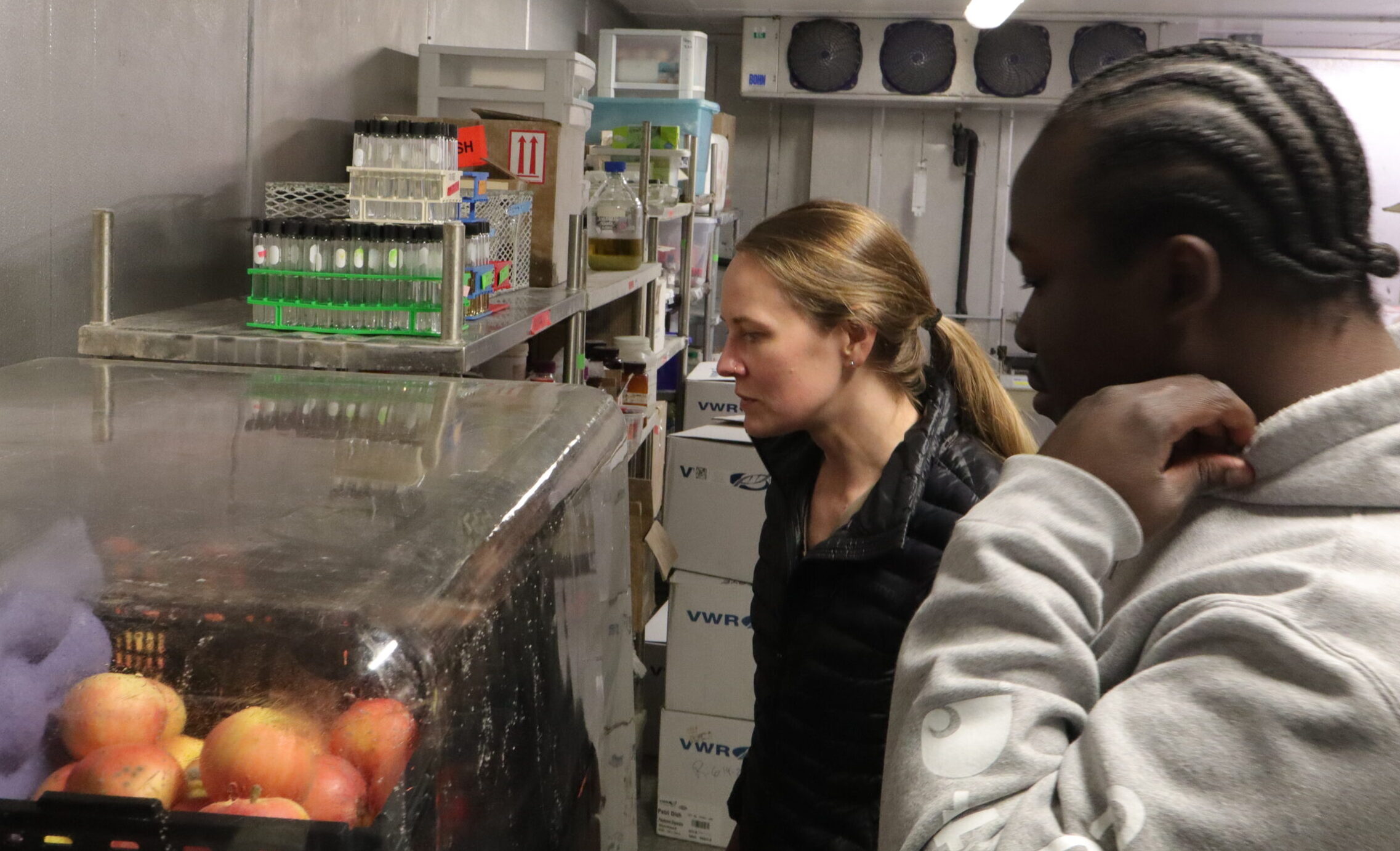Inside the food science building at the University of Georgia, students are working alongside researchers to determine whether there is an organic alternative to traditional methods of shelf life extension.
Why It’s Newsworthy: Food waste in landfills emits methane, a greenhouse gas. If organic produce stayed fresh longer, less of it would end up in landfills, reducing its contribution to atmospheric pollution.

Researchers in UGA’s College of Agricultural and Environmental Sciences, Laurel Dunn and Faith Critzer, are studying the use of essential oil coatings on organic produce for its ability to aid in food safety and reducing spoilage.
The project funding came out of a $3.5 million grant from the United States Department of Agriculture (USDA) to test different coating formulations for produce protection. The federal funding freeze has not impacted this and they are optimistic that it will not, said Dunn.
Organic produce is often more susceptible to faster spoilage and more pathogens because of the added restrictions that come alongside being labeled organic, said Justin Daniel, a food science master’s student in Dunn’s lab.
“I think a lot of people would be surprised that we’re putting coatings on organic produce,” Dunn said.
Why It Matters
Food waste is a huge issue when it comes to sustainability in the agriculture industry, Dunn said. So, if the shelf life of produce can be extended, even by a couple of days, progress can be made toward reducing it.
Carolyn Hemingway, a stay-at-home mom and homeschool teacher from Oglethorpe County, says she is passionate about eating organic and knowing where her family’s food comes from. However, she understands the struggles of spoilage and cost when shopping this way.
“There’s a reason why everybody switches to stuff covered in preservatives,” she said.
She added that she would still conduct her own research.
If I knew for a fact that it was safe and would make my produce last longer, then yes, I would purchase,” Hemingway said.
If this experiment is successful, increasing the shelf life of produce would reduce food waste on behalf of consumers as well as producers and stores that are selling produce. Environmentally, creating less food waste lowers greenhouse gas emissions and protects our atmosphere, helping to combat global warming.
Experimentation Process
The essential oils used are all derived from natural sources and are not actually considered food additives, Dunn said. One example is the use of cinnamaldehyde which naturally occurs in cinnamon. So, anyone who eats cinnamon is already consuming this compound.
“We’re just concentrating that and applying that at a higher concentration to try to get some of that antimicrobial effect,” she said.
The essential oils used in the study are all designated as generally recognized as safe (GRAS) by the USDA, meaning they are safe for consumption.

While Critzer and Dunn’s research will focus on a wide array of produce, Daniel’s focuses on the apple industry and testing this methodology on organic apples. The process began with determining the right coating formulation and applying it to some of the apples. Over the course of the next 11 months, the apples will be monitored and compared to test the efficacy of the coatings in protecting against pathogens and spoilage.

Potential Application
If the experiment succeeds, consumers could theoretically place a conventional and organic apple on a counter and have them last the same amount of time, Dunn said.
The coatings would still be considered organic, but they would be “leveling out organic apples to traditional apples in terms of shelf life,” Daniel said.
Abby McCulloh is a senior majoring in journalism at the University of Georgia.









Show Comments (0)